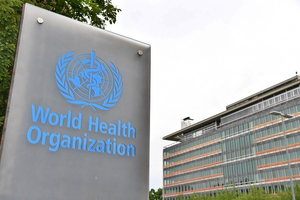
New Delhi, Sep 18 — Noncommunicable diseases (NCDs) such as diabetes, hypertension, and cancers, alongside mental health conditions like anxiety and depression, have been labeled as “silent killers” by the World Health Organisation (WHO) Director-General, Dr. Tedros Adhanom Ghebreyesus. Speaking on Thursday, Dr. Ghebreyesus emphasized the urgent need for countries to implement cost-effective strategies to combat the growing burden of these conditions.
“Noncommunicable diseases and mental health conditions are silent killers, robbing us of lives and innovation,” stated Dr. Ghebreyesus. His remarks coincide with the release of a new WHO report titled “Saving lives, spending less,” which highlights that an additional investment of just $3 per person annually in addressing NCDs could result in economic benefits of up to $1 trillion by 2030.
Global Impact and Economic Implications
The WHO report reveals that 82 percent of countries saw reductions in NCD mortality between 2010 and 2019. However, the pace of progress has slowed significantly, with a 60 percent reduction rate across most regions. Alarmingly, some countries are witnessing a resurgence in NCD-related deaths.
More than one billion people live with mental health conditions, and nearly 75 percent of deaths related to NCDs and mental health occur in low- and middle-income countries, accounting for 32 million lives lost each year.
Dr. Ghebreyesus highlighted that countries like Denmark, South Korea, and Moldova are setting examples by effectively managing these health challenges. “Investing in the fight against NCDs isn’t just smart economics — it’s an urgent necessity for thriving societies,” he said.
Barriers to Progress and the Role of Industries
The WHO report underscores the affordability and cost-effectiveness of solutions to tackle NCDs and promote mental health. However, it also warns against the influence of powerful industries whose products contribute to disease. These include tobacco, alcohol, and ultra-processed food companies, which often attempt to block, weaken, or delay life-saving policies.
“It is unacceptable that commercial interests are profiting from increasing deaths and disease,” said Dr. Etienne Krug, Director of WHO’s Department of Health Determinants, Promotion and Prevention. “Governments must put people before profits and ensure evidence-based policy is not derailed by corporate pressure.”
Future Directions and Call to Action
Without urgent and sustained action, millions more lives could be lost prematurely. The WHO calls for governments to take decisive actions against these industries and to prioritize public health over commercial gains. The report advocates for measures such as health taxes and marketing restrictions aimed at protecting children.
The announcement comes as global health systems continue to grapple with the dual challenges of managing infectious diseases and the rising tide of NCDs. The WHO’s call to action is a reminder of the critical need for comprehensive health policies that address both current and future health threats.
As nations navigate these complex health landscapes, the WHO’s guidance offers a pathway to not only save lives but also to secure economic stability and societal well-being. The move represents a crucial step towards a healthier, more equitable world.




